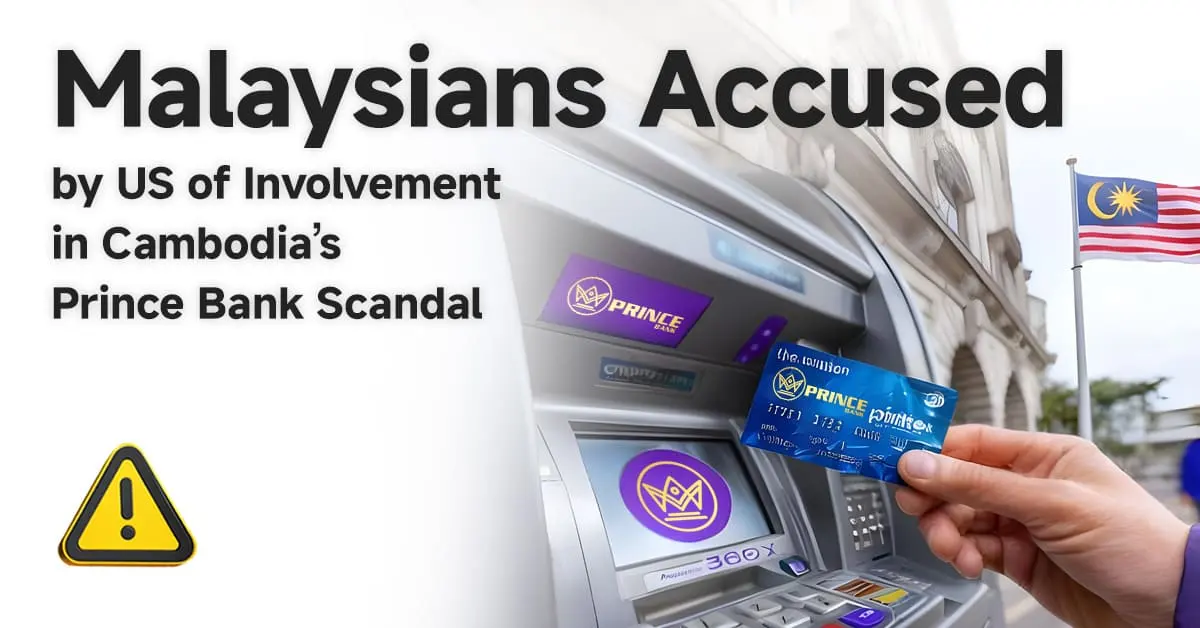简体中文
繁體中文
English
Pусский
日本語
ภาษาไทย
Tiếng Việt
Bahasa Indonesia
Español
हिन्दी
Filippiiniläinen
Français
Deutsch
Português
Türkçe
한국어
العربية
Retiree Loses RM2.33 Million in Investment Scam – Could You Be Next?
Abstract:A 62-year-old retiree in Malaysia has reportedly lost RM2.33 million after falling victim to a fraudulent stock investment scheme promoted through a WhatsApp group.

A 62-year-old retiree in Malaysia has reportedly lost RM2.33 million after falling victim to a fraudulent stock investment scheme promoted through a WhatsApp group.
According to Johor police chief Commissioner Datuk M. Kumar, the victim stated in his police report that an unknown individual had introduced him to the investment opportunity. His phone number was subsequently added to a WhatsApp group, where he was directed to a linked website that purportedly allowed him to monitor profits and manage his investments.
The fraudulent scheme lured the retiree with promises of substantial returns, allegedly guaranteeing earnings of up to US$8 million (approximately RM32.2 million). Encouraged by these prospects, the victim proceeded to transfer RM2.33 million across four transactions to four different local bank accounts between 27 November 2024 and 4 March 2025.

Authorities have classified the case under Section 420 of the Penal Code, which deals with cheating and dishonestly inducing the delivery of property. Commissioner Kumar urged the public to exercise caution when presented with investment opportunities that appear too good to be true. He advised individuals to verify the legitimacy of such schemes with relevant financial authorities, including Bank Negara Malaysia and the Securities Commission, before making any commitments.
To further protect themselves from financial fraud, the public has been encouraged to stay informed about evolving scam tactics. Commissioner Kumar emphasised the importance of accessing reliable sources of information, such as the Commercial Crime Investigation Departments official social media channels on Facebook, Instagram, and TikTok, which provide updates on prevalent fraud schemes.

As investment scams continue to rise, digital verification tools such as WikiFX have become invaluable resources for investors seeking to assess the legitimacy of brokers and financial platforms. WikiFX maintains an extensive database of global broker profiles, offering insights into regulatory compliance, user reviews, and risk assessments. By leveraging such platforms, investors can identify unlicensed or suspicious entities and take proactive steps to protect their financial assets.

Disclaimer:
The views in this article only represent the author's personal views, and do not constitute investment advice on this platform. This platform does not guarantee the accuracy, completeness and timeliness of the information in the article, and will not be liable for any loss caused by the use of or reliance on the information in the article.
Read more

Deepfake Investment Trap: Fake Ads Used Images of Politicians to Scam the Public
A new wave of online scams has emerged in Singapore, this time using verified Google ads that feature fake endorsements from political figures and claim to offer exclusive investment opportunities for Singaporeans.

Profit Pulse Scam: How an Online ‘Investment Seminar’ & Fake Analyst Stole Millions
A fake “investment seminar” in Thailand has exposed a multimillion-baht cyber scam so convincing it could easily cross borders. This is a clear warning for Malaysians to stay alert and think twice before trusting the next online trading offer.

Malaysians Accused by US of Involvement in Cambodia’s Prince Bank Scandal
The dark web of banking: how a ‘legitimate’ bank became a front for global fraud!

He Thought It Was a Crypto Investment; It Cost Him RM1.2 Million
A single click and a promise of quick profits led a retiree into a crypto trap that wiped out his life savings.
WikiFX Broker
Latest News
Angel one 2025 Review & Complaints
Latest FCA Daily Alerts and Consumer Warnings for 2025
Webull Widens Crypto Futures with Coinbase Derivatives
Is Nash Markets Regulated or Risk? Truth About Nash Markets’ License & Withdrawal Issues
CySEC Blocks Certification Access to Combat Advisor Impersonation
Exclusive Markets Under the Scanner: Traders Report High Swap Charges, Deposit Discrepancies & More
The United States Outgrows All Its Major Peers
PINAKINE Broker India Review 2025: A Complete Guide to Safety and Services
Pinched By Penny Shortage, US Retailers Beg Congress To Step In
PINAKINE Broker Review: A Complete Look at Its Services and Risks
Currency Calculator



